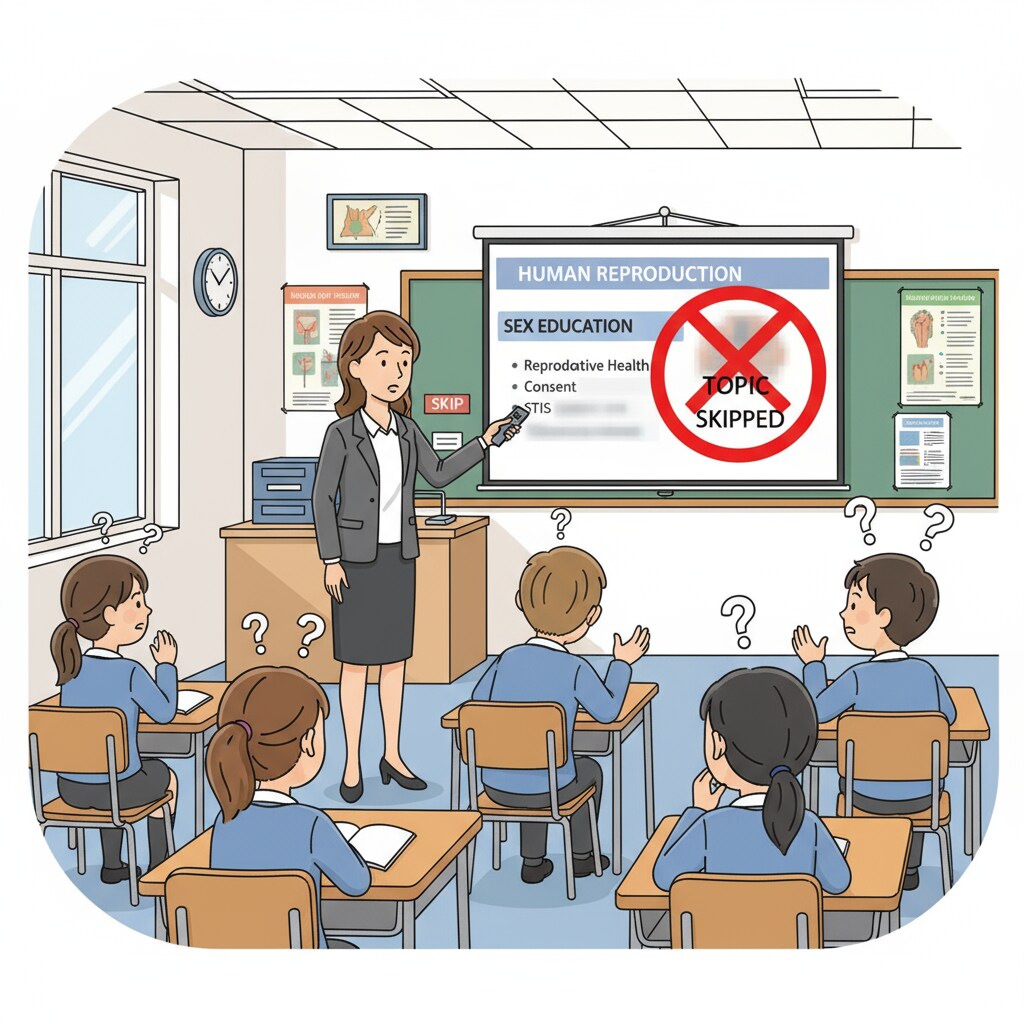Sex education, school education, and adolescent health are intertwined in a complex web that often gets overlooked. In the current K12 school system, there is a prevalent tendency to avoid comprehensive sex education. This avoidance has far-reaching implications for the well-being of teenagers.

The Prevalence of Avoidance
Many K12 schools across the country are hesitant to incorporate comprehensive sex education into their curricula. According to Education Week’s coverage on sex education in schools, a significant number of schools either provide minimal sex education or avoid it altogether. This is due to various reasons, including concerns from parents, conservative beliefs, and a lack of clear guidelines. For example, some parents worry that explicit sex education might be too “influential” for their children, leading schools to back away from the topic.

The Reasons Behind the Avoidance
One major reason for schools’ avoidance of sex education is the influence of conservative ideologies. Some communities believe that discussing sexual topics in school goes against traditional values. Additionally, there is a fear of legal issues. Without proper legal frameworks and support, schools may be reluctant to take on the responsibility of teaching sex education. As a result, students are left in the dark about important aspects of their physical and mental health.
The Negative Impact on Adolescent Health
When schools avoid sex education, adolescents are at a disadvantage. They lack accurate information about puberty, sexual health, and relationships. This lack of knowledge can lead to risky behaviors. For instance, without proper education, teenagers may be more likely to engage in unprotected sex, increasing the risk of sexually transmitted infections and unplanned pregnancies. According to the CDC’s research on adolescent sexual health, these issues are closely related to the quality and availability of sex education in schools.
In addition, a lack of sex education can also have a negative impact on mental health. Adolescents may face confusion, anxiety, and shame when dealing with sexual feelings and experiences without proper guidance. This can further affect their self-esteem and overall well-being.
Readability guidance: As we’ve seen, the avoidance of sex education in schools has multiple layers of causes and consequences. By understanding these, we can work towards a better approach that prioritizes adolescent health and development. Each aspect, from the reasons behind the avoidance to its impact on health, is crucial in this discussion. We need to move forward with solutions that balance different concerns while ensuring students receive the education they need.


